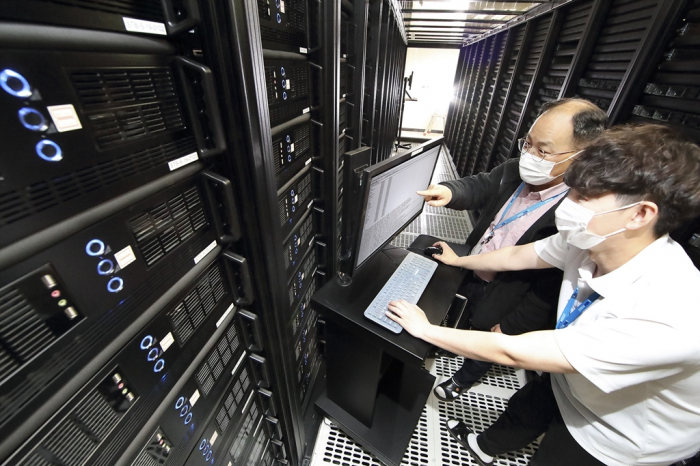Tech, Media & Telecom
Korea internet data center construction faces health issue
Controversies over electromagnetic radiation may linger although experts see few harms as most IDCs may be built near Seoul
By Jan 17, 2023 (Gmt+09:00)
2
Min read
Most Read
LG Chem to sell water filter business to Glenwood PE for $692 million


KT&G eyes overseas M&A after rejecting activist fund's offer


Mirae Asset to be named Korea Post’s core real estate fund operator


StockX in merger talks with Naver’s online reseller Kream


Meritz backs half of ex-manager’s $210 mn hedge fund



South Korea’s information technology industry hit a snag with building new internet data centers (IDCs) due to controversies over the potential impact of electromagnetic radiation from the facilities on public health although experts played down its influence on the human body.
The Korea Electric Association – an industry group – and a lawmaker on Monday held a policy forum to discuss measures to ease concerns over electromagnetic radiation as complaints from residents of sites for new IDCs increased.
An IDC is a facility used to house computer systems and associated components including telecommunications and storage systems for various IT sectors such as artificial intelligence and over-the-top media. The center requires about 25 gigawatt-hours (GWh) a year, similar to the annual power consumption for 6,000 households of a four-person family.
Some residents of the sites for IDCs claimed the electromagnetics radiated from electric power transmission cables for the facilities could cause cancers, fanning controversies over the centers. In 2019, Naver Corp., the country’s top online portal, gave up building an IDC near Seoul due to protests from residents.
NOT SERIOUS ENOUGH
Experts, however, say that electromagnetic radiation is not serious enough to hurt health.
The International Agency for Research on Cancer, an intergovernmental body forming part of the World Health Organization, said the biophysical effect showing exposure to low levels of electromagnetics leads to cancers has yet to be revealed.
“The impact on residents will be extremely minimal as the power transmission cables will be installed underground and the data center will be equipped with facilities to block the electromagnetic radiation,” said an industry source in Seoul.
Controversies over the impact of IDCs on health are expected to linger for the time being as demand for the centers is growing on increasing data-based services.
Most of the local IT companies plan to set up IDCs in Seoul and surrounding areas where about half of South Korea’s population resides. More than 80% of new IDCs by 2029 are likely to be set up in the areas, industry sources expected.
“We need IDCs close to cities where demand is high for next-generation services such as the Internet of Things and autonomous driving that require quick responses,” said an IT industry source. “We are seeking various measures to persuade residents of the areas.”
Write to Han-Gyeol Seon at always@hankyung.com
Jongwoo Cheon edited this article.
More to Read
-
 Business & PoliticsTrump Jr. meets Korean business chiefs in back-to-back sessions
Business & PoliticsTrump Jr. meets Korean business chiefs in back-to-back sessionsApr 30, 2025 (Gmt+09:00)
-
 Korean chipmakersSamsung in talks to supply customized HBM4 to Nvidia, Broadcom, Google
Korean chipmakersSamsung in talks to supply customized HBM4 to Nvidia, Broadcom, GoogleApr 30, 2025 (Gmt+09:00)
-
 EnergyLS Cable breaks ground on $681 mn underwater cable plant in Chesapeake
EnergyLS Cable breaks ground on $681 mn underwater cable plant in ChesapeakeApr 29, 2025 (Gmt+09:00)
-
 Business & PoliticsUS tariffs add risk premium to dollar assets: Maurice Obstfeld
Business & PoliticsUS tariffs add risk premium to dollar assets: Maurice ObstfeldApr 29, 2025 (Gmt+09:00)
-

Comment 0
LOG IN


